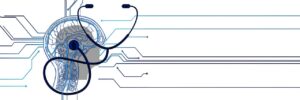Every patient deserves timely access to expert care, but for millions, this feels like a distant dream. Across the world—and here at home in the U.S.—wait times for specialist appointments are frustratingly long. This access gap is more than an inconvenience; it’s a serious barrier to better health for so many. Whether it’s an urban health center or a small-town clinic, people everywhere face delays or obstacles that limit their ability to get the expertise they need.
What’s worse, those with lower incomes and poorer insurance options face an even steeper climb. For primary care providers (PCPs), who act as the first touchpoint for many patients, this gap isn’t just a challenge—it’s a daily source of strain. They need answers fast but often find themselves navigating frustratingly inefficient communication systems.
What if there was a solution that tackled it all? What if PCPs could get answers from specialists in a matter of hours instead of weeks, build stronger professional relationships, and learn from every patient encounter? This is where eConsult systems come in.
Here at DocSide, we’ve seen—time and again—how eConsults revolutionize care. The data backs it up too, as proven by the Champlain BASE eConsult system in Eastern Ontario. And the best part? It’s a game-changer for providers, specialists, and especially patients.
The Access Problem
Access to specialist care is broken. Studies show that nearly 56% of Canadians wait more than four weeks for specialist appointments, a figure higher than in most developed countries. By contrast, while the U.S. fares better overall, disparities remain stark in underserved areas. Patients in low-income communities are often left either waiting or lacking care outright (Liddy et al.).
These delays ripple through the system—frustrating providers and patients alike, burdening emergency rooms, inflating costs, and leading to poor outcomes for those in need of chronic or specialty care (Canadian Institute for Health Information).
Specialists are equally stretched thin. Time that could be spent diagnosing and treating patients is instead tied up in inefficient referral systems. PCPs often feel left in the dark with no direct, user-friendly way to get their patients the help they deserve.
This matters because when healthcare grinds to a halt, lives hang in the balance. The result? Experts unanimously agree: we need new approaches, and we need them fast.
What Are eConsults?
Electronic consultation (or eConsult) systems address care gaps by speeding up communication between PCPs and specialists. Using an intuitive, secure online system, PCPs can submit their detailed concerns—or specific patient questions—to chosen specialists.
Within hours or days (not weeks), specialists reply with actionable advice. They might offer guidance on treatment, suggest diagnostic options, or recommend whether an in-person visit is necessary.
One standout system, the Champlain BASE eConsult service, has been particularly revolutionary. Adopted in Eastern Ontario, the tool connects rural and urban providers alike to specialists across multiple fields—all while reducing wait times, fostering collaboration, and achieving high levels of user satisfaction. And guess what? It works phenomenally well.
The median response time for Champlain BASE eConsult cases is 0.9 days. Yes, you read that right. On average, PCPs get specialist feedback in less than 24 hours, ensuring their patients can move forward in their treatment plans almost immediately (Liddy et al.).
Not only does this system solve the access problem—it creates new opportunities that benefit both patients and caregivers.
A Win-Win for Providers and Patients
The genius behind eConsult systems is that everyone involved wins.
1. Better Care for Patients
Patients feel less strain when they can rely on their PCPs to provide informed next steps immediately. Imagine a scenario where a worried mother learns her son’s condition doesn’t warrant a visit to the big-city hospital after all—saving her both money and time.
Or think about rural patients who might otherwise need to drive for hours to access care. Instead, they now receive diagnostic or treatment plans from home. No unnecessary appointments, no wasted trips.
Studies also highlight cost savings driven by fewer ER visits, streamlined PCP-specialist interaction, and a reduced need for face-to-face referrals. When barriers are lessened, patients do better.
2. Knowledge Transfer Boosts PCP Confidence
One thing about eConsults? They’re not just a communication tool—they’re a teaching tool. Each response received by a PCP is filled with actionable insights that can improve how they approach future cases.
The Champlain BASE eConsult program found that PCPs valued these interactions deeply. They often discovered knowledge gaps they hadn’t been aware of, leading them to seek further education (Liddy et al.).
For instance, specialists used eConsult replies to outline diagnostic strategies or medication side effects. Over time, this builds a stronger, more self-assured pool of PCPs better equipped to serve their communities.
“An excellent response with clear advice, teaching pearls, and extra resources—thank you,” one PCP shared. Positive feedback like this flowed freely through Champlain’s post-case surveys.
Whether newly graduated or seasoned practitioners, these conversations enhance their expertise in ways that benefit both today’s patients and future ones.
3. Strengthened Inter-Provider Relationships
Healthcare thrives on strong professional bonds, and eConsults pave the road for those connections. PCPs in Eastern Ontario note that their relationships with specialists have grown more collaborative and collegial thanks to eConsult platforms.
Many PCPs feel specialists go “above and beyond”—offering detailed responses and proactive advice that extend past the immediate case. One grateful PCP even remarked, “This feedback was great…a perfect learning tool for a new grad like myself!”
Building connections isn’t just nice—it’s critical in creating a healthcare ecosystem where trust and teamwork drive better decisions.
4. It Doesn’t Hurt the Bottom Line Either
eConsults are efficient. The Champlain BASE system has proven that specialist feedback can often stop inefficiencies before they ripple out into larger system-wide costs.
By tailoring answers directly to patient-specific needs, eConsults help PCPs avoid unnecessary referral appointments—saving not just time but major healthcare dollars (Liddy et al.). For administrators and payers, this alone makes eConsults a no-brainer.
Why DocSide Leads the Way
At DocSide, we’re committed to scaling this proven solution and harnessing its full potential. Our eConsult platform builds on successes like those seen in Ontario, providing PCPs with unparalleled tools to connect with their specialist counterparts.
But we don’t stop at “just” connecting providers. We’re innovators, marrying cutting-edge tools with real-time feedback systems that simplify communication, save time, and reduce burnout.
Our approach focuses on efficiency—integrating our system seamlessly into existing workflows, pulling up patient profiles instantly, and delivering reliable results without friction.
And because DocSide values education as much as connection, our interface ensures every PCP interaction becomes an opportunity for learning, professional growth, and deeper collaboration.
eConsults aren’t just about filling a communication gap—they’re about shaping a future where no patient waits unnecessarily, no provider feels isolated, and no opportunity to improve healthcare is wasted.
With DocSide powering the way forward, the healthcare system can move from reactive care to proactive systems where collaboration thrives and everyone benefits.
Healthcare has problems—but at DocSide, we thrive on solving them. Shall we get to work?





